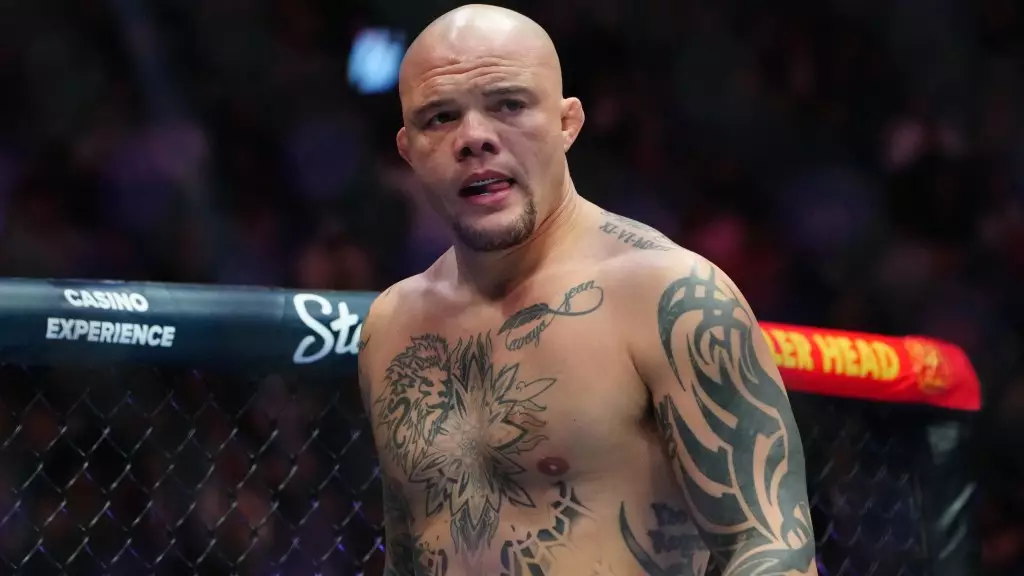In the world of mixed martial arts, few figures command as much respect or scrutiny as athletes who have endured the rigors of the UFC. Recent comments made by former UFC champion T.J. Dillashaw regarding Anthony Smith’s fighting spirit ignited a debate surrounding the authenticity of heart and resilience in combat sports. Dillashaw’s harsh claim that Smith lacked the heart to ever reclaim a UFC championship was met with backlash from fellow fighters like King Green, who champions Smith’s extensive career experience and tenacity in the face of adversity.
Dillashaw’s perspective, while grounded in his personal experiences, fails to take into account the extensive journey that fighters like Smith undertake. With an impressive 38 wins and 21 losses, Smith’s resume showcases a willingness to face some of the toughest competitors in the sport. Green argues that such a record alone demands respect, stating, “You can’t question a fighter’s heart when he’s shown up to compete over fifty times against the best in the business.” This level of exposure not only builds resilience but also reveals the complexities behind a fighter’s mentality, often obscured by the adrenaline of competition.
Diving deeper into the heart of the issue, one must consider the circumstances surrounding each fight. While Dillashaw points to perceived moments of surrender during fights, Green reminds us that we often overlook the physical toll and invisible struggles that fighters endure. Injuries, fatigue, and the psychological wear from consistently facing the best can impact performance in ways that are not immediately visible to fans or commentators. Green encapsulates this sentiment perfectly when he reflects on his own injuries, saying, “My nose is already broke four times, and he just hit me right in my sh*t again.” Thus, it is essential to differentiate between tactical decisions made in the octagon and an outright lack of tenacity.
This notion of ‘quitting’ during fights often triggers debates about fighters’ mental fortitude. However, it is crucial to understand that every fighter has a different threshold for pain and an individual approach to self-preservation in the heat of a match. To label someone as not having heart based on visible moments in the ring reduces the complexity of the sport and the fighters themselves.
Anthony Smith’s career also includes notable achievements such as challenging for the UFC Light Heavyweight title against Jon Jones in March 2019. Despite being on the receiving end of an illegal knee strike, Smith’s decision to continue fighting showcases his commitment to the sport and determination not to back down in the face of adversity. For Smith, each fight is an opportunity to elevate himself further, even if the outcome does not always align with expectations.
As Smith prepares to take the octagon one last time at UFC Fight Night against Zhang Mingyang, the scrutiny he faces should not overshadow his accomplishments or dedication. ‘Lionheart’ encapsulates the soul of a fighter, one who has weathered many storms—both within and outside the octagon. His career is a testament to the fact that heart cannot be measured solely by the outcomes of fights or the moments perceived as weaknesses. Instead, true heart is illustrated over time, through perseverance, and the willingness to step into the cage time and again.

